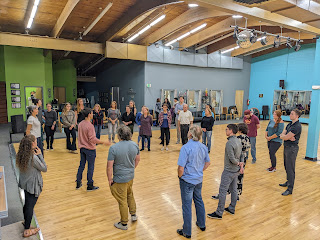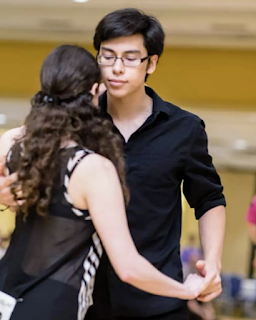Partner practice 101: co-op mode
I've written a bit about how to work on stuff , how to choose and keep track of what you're working on , and a bit about playing with variables to make partner practice more productive . Partner practice outside of social dances can certainly just be 'more useful floor time', time spent with a partner with whom you don't feel like you'll develop odd habits dancing with, or a safe space to social dance but try things that you might not have when surrounded by other people on a crowded floor. But, adding a bit of structure can be useful. I've been advising this rough outline since about 2017 and I think that it's still a great place to start. It's primarily designed for two people to practice together, but works in a small group setting as well. You'll start with whatever personal warmup you need to feel present in your body, aware of your partner and ready to have a productive practice. This might be joint mobility exercises and some stretchi...

